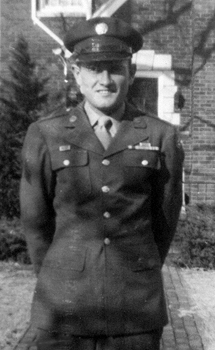
April 2, 2020
By Steve Brawner
© 2020 by Steve Brawner Communications, Inc.
We’re possibly engaged in World War III, so this might be a good time to recall World War II, and what was required to win it from people like Malvern’s Cletis Overton.
Cletis was serving as a U.S. Army aircraft mechanic in the Philippines in December 1941 when Japan attacked that country along with Pearl Harbor. For months, he and his fellow soldiers retreated until there was nowhere to go, and they were captured and forced to walk 60 miles in what became known as the Bataan Death March. From there he endured a series of prison camps marked by forced labor, limited food, malaria and dysentery.
Eventually the tide of the war reversed. As American forces closed in on the weakening Japanese strongholds, he and his 750 fellow prisoners were herded into the sweltering hold of a cargo ship, where they survived on a cupful of rice and a few swallows of water twice a day. Two five-gallon barrels served as toilet facilities. They were transferred to another ship, the Shinyo Maru, for transport to Japan, but near the coast of the Philippines the ship was sunk by an American submarine that was unaware of its cargo. That torpedo resulted in the deaths of 668 Americans. Cletis swam to shore and eventually made it home. When his mother, Virgie, saw him approach, she prayed a beautiful thanksgiving prayer and then cooked him fried chicken, his favorite meal.
I met Cletis in 2000 when he hired me to write his life story. His chiseled facial features and gruff speaking manner first intimidated me, but I soon learned not to mistake his strength for hardness. When he was in the ocean, he had promised God he would credit Him whenever he discussed his experiences, and he kept that promise, including in his book, “The Lord Is My Shepherd.” He once told me matter-of-factly, “If there is an attack on the United States or its possessions, and they needed 80-year-old men, I’d go.”
Cletis died in 2016 at age 95. There will be times in the coming days that it would have been nice to have him and others of his generation – the so-called “Greatest Generation” – around.
Is it too dramatic to call what we’re experiencing World War III? The entire globe is being gripped by this pandemic, which, like Cletis’ war, started overseas and inevitably made its way here. The worldwide count of nearly 50,000 deaths as of Thursday morning surely understates the actual toll. More than 5,000 Americans have died as of Thursday morning. More than 1,000 died on Wednesday alone. New York City had reached 1,374 deaths with the worst yet to come. The city is deploying mobile morgues to collect the bodies.
If there’s a positive, it’s that in this war, mankind has a common enemy and at least we’re not killing each other. This war’s frontline soldiers are doctors and nurses. Most of the rest of us who are healthy are passive combatants. We don’t have to survive a prison camp. Instead we must maintain social distancing, spend more time at home, and, for many of us, survive unemployment, which is challenging. As in World War II, the United States enters the moment unprepared, and we all should discuss that in detail later. Now it must mobilize to produce not tanks and bombs but personal protective equipment and ventilators.
On Tuesday, President Trump said in a press conference, “I want every American to be prepared for the hard days that lie ahead. We’re going to go through a very tough two weeks.” After that, he said, “you’re going to start seeing some real light at the end of the tunnel.”
I hope he’s right about the second part. The hardship itself is going to last a lot longer than two weeks.
Eventually this war will end, as the last one did in 1945. Most of us will get through this, though we’ll be changed. Unfortunately, this is not the last world war we’ll fight against a viral enemy.
When it ends, we’ll emerge from our isolation and be reunited with friends and family. We won’t have to stand six feet apart. And we can have dinner in groups of more than 10 people.
Let’s have fried chicken. Cletis would like that.
Steve Brawner is a syndicated columnist in Arkansas. Email him at brawnersteve@mac.com. Follow him on Twitter at @stevebrawner.